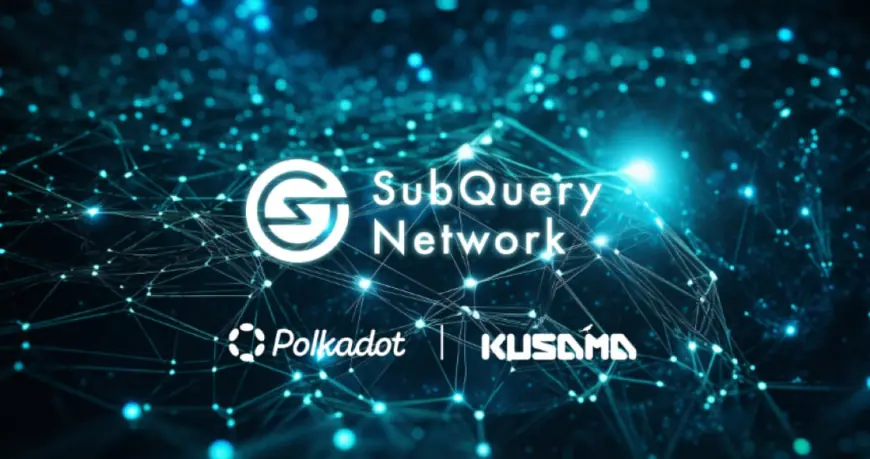SubQuery Launches First Decentralized RPCs for Polkadot and Kusama Networks
SubQuery launches the first decentralized RPCs for Polkadot and Kusama networks. Over 30 independent Node Operators support SubQuery’s decentralized RPCs. SubQuery Network, a provider of Web3 infrastructure, has released two new decentralized Remote Procedure Calls (RPCs) for the Polkadot ecosystem. The first RPCs of their kind on Substrate-based networks, they are accessible for Polkadot and [...]


- SubQuery launches the first decentralized RPCs for Polkadot and Kusama networks.
- Over 30 independent Node Operators support SubQuery’s decentralized RPCs.
SubQuery Network, a provider of Web3 infrastructure, has released two new decentralized Remote Procedure Calls (RPCs) for the Polkadot ecosystem. The first RPCs of their kind on Substrate-based networks, they are accessible for Polkadot and Kusama. With this advancement, the decentralized web3 infrastructure is improved to a great extent.
Expanding Web3 Infrastructure
SubQuery provides support for about 200 networks. Its network of widely dispersed, decentralized indexers and RPC providers allows decentralized applications (dApps) to instantly access dependable blockchain data. This decentralized approach, which eliminates centralized points of control, fosters a more robust and secure network.
Now that the new decentralized RPC nodes are available, teams developing on Polkadot and Kusama can use the SubQuery infrastructure to enhance their operations. With these RPC nodes deployed, the Polkadot ecosystem has advanced significantly, and developers now have additional resources and tools to create strong decentralized applications.
Support for Polkadot Developers
This new feature excites SubQuery COO James Bayly: “We are excited to be the first to offer Polkadot decentralized RPCs on the SubQuery Network. Already, our node operators are operating other nodes in several ecosystems as well as RPCs. Being a product of the Polkadot ecosystem, we are well-positioned to assist Polkadot developers with their infrastructure.”
Operating the recently installed RPCs for Kusama and the Polkadot relay chain are over thirty separate Node Operators. Blockchain projects need to use this decentralized approach in order to function well and to get data from several sources without running the dangers of using centralized middleware.
Enhancing Blockchain Communication
As they enable data retrieval, smart contract interactions, and transaction submissions, RPCs are essential to blockchain communication. By enabling dapps to function without centralized middleware, decentralized RPCs reduce related risks and improve security.
Decentralized RPCs from SubQuery Network support safe and effective Web3 communication. Decentralized physical infrastructure networks (DePINs) cannot succeed without this capacity for reliable and open operations. SubQuery improves the web3 environment by offering decentralized RPCs, which makes it possible for dapps to operate effectively and safely.
Beginning in the Polkadot ecosystem, SubQuery first released an indexer that could interface with its special multi-chain architecture. SubQuery has been a top indexer of Web3 data based on chain support ever since, adding hundreds of networks to its reach.
With this new release, SubQuery guarantees that developers have the resources they need to create the decentralized applications of the future by continuing to innovate and meet the expanding web3 infrastructure requirements.
SubQuery Network is proving its dedication to promoting the advancement and expansion of blockchain technology by providing decentralized RPCs for Polkadot and Kusama, therefore opening the door for a more secure and decentralized web3 ecosystem.
What's Your Reaction?









































































































